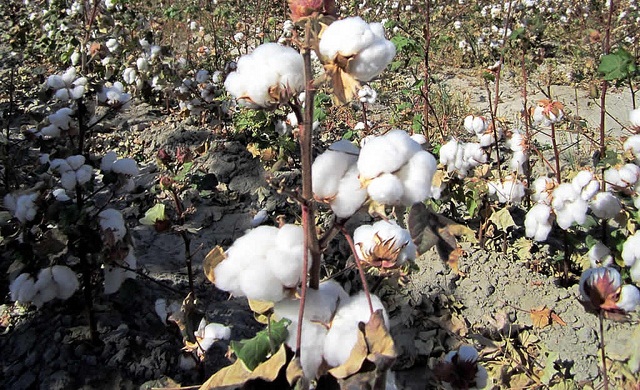
Falls in cotton prices are having a considerable number of effects on stock valuations and trades on the UK stock market. Among the most significant of these effects are those that have been witnessed of late with respect to stocks and shares in retail companies such as Kingfisher (LSE:KGF), Marks & Spencer (LSE:MKS), and Next (LSE:NXT). The favorable rankings that these companies have been achieving on the Financial Times Stock Exchange (FTSE) 100 index are partly due to projected lower input costs they stand to gain in light of falling cotton prices.
Next, in particular, has been put back in a pole position by falling cotton prices. So much so in fact that, in spite of the top-tier index having a rather weak finish a while back as a result of concerns over the effects of the earthquake in Japan, the retail company managed to be among the few in the ‘blue’ so to speak. And the easing in the price of cotton is the primary causative factor to thank for that. Moreover, the Credit Suisse reiterating the company’s “outperform”, and awarding it applaudable recommendations, also served to give the retail chain an additional boost.
The reverse was the case a while back when the issue of rising cotton prices was severely impacting gross margins in UK stock trades. At the time, UK retailers were performing rather poorly on the UK stock market scene especially due to falling levels of market demand for cotton-based products. Worse still, it appeared operating margins would remain under pressure due to rising cotton costs and other input costs, as well as the implemented increase in VAT (Value Added Tax). Thus, several analysts at the time were forecasting further gross margin declines for clothing retailers.
The immensely welcomed subsequent drops in cotton prices can partly be attributed to faltering levels of demand for the commodity. As a matter of fact, many experts adjudge the allure of cotton to be fading fast. Following a preceding protracted period of jarring price moves, the natural fiber actually began losing market share to synthetic fibers at an accelerating rate. This fading popularity is what has led to lower prices that are very likely to persist. Some analysts even go as far as predicting even further falls for cotton prices in the months to come.
According to ICAC (International Cotton Advisory Committee) estimates, cotton has fallen, in terms of world fiber consumption, from a record 67 percent down to 40 percent, and even further down to as low as 32 percent in recent months. Its market share is even lower in developing countries where consumers are the most sensitive to prices and price fluctuations.

 Hot Features
Hot Features













